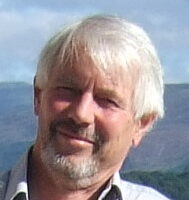
„Philosophical and optimisation aspects of Artificial Intelligence”
Prof. Yurii Nesterov
CIAS at the Corvinus University of Budapest and CORE, UCLouvain
We discuss new challenges in the modern Science, created by Artificial Intelligence (AI). Indeed, AI requires a system of new sciences, mainly based on computational models. Their development has already started by the progress in Computational Mathematics. In this new reality, Optimization plays an important role, helping the other fields with finding tractable models and efficient methods, and significantly increasing their predictive power. We support our conclusions by several examples of efficient optimization schemes related to human activity.
Curriculum Vitae
Prof. Yurii Nesterov, awarded the World Laurate Association Prize is widely known as an inventor of the Fast Gradient Method (1983) and developer of Lexicographic Differentiation (1985). He is one of the creators of the modern theory of polynomial-time interior-point methods for structural convex optimization problems. In the book entitled “Interior-Point Polynomial Algorithms for Convex Programming”, co-authored with A. Nemirovskii, they introduced the theory of self-concordant functions to unify global complexity results obtained for convex optimization problems including linear, second-order cone and semidefinite programming. His subsequent achievements are related to development of Smoothing Technique (2005) and promotion of the higher-order methods (2019). The main impact of these results for practical computations consists in an extension of abilities of the optimization methods above the limits prescribed by complexity theory.
He got several international prizes and recognitions, among them there are
– Dantzig Prize from SIAM and Mathematical Programming society (2000)
– John von Neumann Theory Prize from INFORMS (2009)
– SIAM Outstanding paper award (2014)
– Euro Gold Medal from Association of European Operations Research Societies (2016)
– Member of Academia Europaea (2021) and National Academy of Sciences (USA, 2022)
– Lanchester prize from INFROMS (2022)

„Statistical & numerical algebra based analysis and soft modelling in human-subject experiments”
Prof. Péter Baranyi
CIAS and DAIS at the Corvinus University of Budapest, Hungary
This talk explores a novel perspective on explainable AI by focusing on the logical and causal relations that connect inputs to outputs in AI systems. Rather than relying solely on statistical or black-box interpretations, we seek to reveal transparent if–then structures that mirror human-like reasoning. By identifying these underlying decision rules, we aim to reconstruct interpretable mappings that expose how specific input features lead to specific outcomes. This approach not only enhances trust and accountability but also provides a formal framework for analysing the stability and generalizability of AI behaviour. The talk will illustrate this concept through selected examples and propose methodological steps for extracting structured logic from complex models. Ultimately, we argue that uncovering such transparent logic is essential for the integration of AI into safety-critical and ethically sensitive domains.
Curriculum Vitae
Peter Baranyi, a renowned Hungarian scholar, has made significant contributions to the fields of non-linear control theory & modelling, as well as the cognitive aspects of digital reality. In 2010, he introduced the concept of Cognitive Info-Communications, which focuses on the new cognitive capabilities of the blended combination of human and informatics. One of his notable inventions is the TP model transformation, a higher-order singular value decomposition of continuous functions. This transformation plays a crucial role in the development of nonlinear control design theories and paves the way for optimization techniques. Baranyi’s scientific achievements have been recognized with prestigious awards, including the Investigator Award from Sigma Xi and the International Design Gabor Award. He has published over 100 journal papers and authored three books. In 2006, he was honoured with a doctorate from the Hungarian Academy of Sciences.

„Policy Optimization in Control: Geometry and Algorithms”
Prof. Mehran Mesbahi
University of Washington, USA
First order methods have widely been adopted in design and optimization of large-scale dynamic systems. In recent years, there has been a surge of renewed research activities in adopting first order methods and their variants for direct policy optimization in feedback synthesis, providing an effective bridge for exploring how model and data fidelity effect stability and performance of synthesized dynamics systems. Such a perspective has also opened up a host of theoretical and computational questions at the heart of control theory. In this talk, I will provide an overview of this active area of research, followed by a host of related analytic and geometric insights and questions, as well as challenges and opportunities at the intersection of learning and control inspired by this line of work.
Curriculum Vitae
Mehran Mesbahi is the J. Ray Bowen Endowed Professor of Aeronautics and Astronautics, Adjunct Professor of Electrical and Computer Engineering and Mathematics at the University of Washington in Seattle, member of the Washington State Academy of Sciences, and Executive Director of Joint Center for Aerospace Technology Innovation. He is a Fellow of IEEE, Fellow of AIAA, and recipient of NASA Space Act Award, University of Washington Distinguished Teaching Award, and University of Washington College of Engineering Innovator Award. He is the co-author of the book “Graph Theoretic Methods in Multiagent Networks” published by Princeton University Press. His research interests are distributed and networked aerospace systems, autonomy, control theory, and learning.

„Toward Cognitive Synergy: Integrating AI and Aesthetic Technologies through the Convergent Knowledge Innovation Model”
Prof. Giovanni Schiuma
Full Professor of Innovation and Knowledge Management, Department of Engineering, LUM Giuseppe Degennaro, Italy
In today’s digital age, organizations must go beyond purely functional innovations to design experiences that resonate emotionally, culturally, and cognitively with people. This keynote introduces the Convergent Knowledge Innovation model. This novel framework integrates Artificial Intelligence (AI) and Aesthetic Technologies (AT) to foster a new cognitive synergy between human and artificial systems.
While AI strengthens organizations’ rational capabilities, enhancing data-driven decision-making, automation, and analysis, it often overlooks the emotional, sensory, and interpretative dimensions fundamental to human-centered innovation. Aesthetic Technologies, particularly when activated through arts-based approaches, complement AI by engaging imagination, perception, and meaning-making, thus extending the emotional and experiential scope of organizational cognition.
Grounded in the knowledge-based view of innovation and informed by science and technology studies, the model positions AI and AT as complementary cognitive technologies. Together, they enable the development of hybrid cognitive architectures that blend logical reasoning with aesthetic insight, fostering environments where artificial and natural intelligences can co-evolve to generate transformative value.
By aligning machine intelligence with human imagination, the Convergent Knowledge Innovation model opens new pathways for designing sustainable, meaningful, and emotionally enriched innovations in the era of cognitive infocommunications.
Curriculum Vitae
Professor Giovanni Schiuma is a globally recognized thought leader in knowledge and innovation management, serving as a Full Professor and Director of the Department of Engineering at LUM University in Italy. A Fulbright Scholar at Seton Hall University, Professor Schiuma has held prestigious positions including Director of the Innovation Insights Hub and Professor of Arts-Based Management at the University of the Arts London. His expertise in arts-driven innovation and knowledge-based organizational development has made him a sought-after consultant and speaker worldwide. As President of the International Forum on Knowledge Assets Dynamics (IFKAD) and Chief Editor of the journals Measuring Business Excellence and Cunsulting Editor of Knowledge Management Research and Practice, he has significantly influenced the fields of knowledge management and business excellence. With a prolific academic career spanning over 200 scholarly publications and international engagements at leading institutions such as the University of Cambridge, Cranfield School of Management, and University of Tampere, Professor Schiuma is an inspiring communicator and facilitator known for his creative and innovative approach to solving strategic research and organizational challenges. His work is marked by an exceptional ability to integrate the arts into business practices, driving human-centric innovation in an increasingly digital world.

„Projects – why do they so often go horribly wrong: the role of systemic risk management”
Prof. Colin Eden
Strathclyde Business School, University of Strathclyde, Glasgow, UK
Most of us spend much of our lives as a part of projects. Developing Artificial Cognitive Capabilities and Intelligent Vehicle and Transportation Systems are projects, and each demand careful and effective project management, and project management involves effective risk assessment and mitigation. Projects work toward a goal, trying to meet a deadline, and remain within a budget. Projects face many risks, and these risks are systemically linked.
My talk is grounded in my experience in the analysis of failed projects that have led to litigation. The presentation will explore some of the significant dangers in projects such as these. It turns out that the characteristics of these projects are similar to those in software systems development, and some were directly related to such developments. The focus of my talk are the systemic disasters that follow from disruptions and delays (D&D). Considering risks as systemic is crucial, and so we developed an effective method for systemic risk assessment and mitigation. The method involves the use of causal/strategy mapping via a cloud-based group support system. The talk will illustrate, through real case examples, how the method is used.
Curriculum Vitae
Colin Eden is a leading scholar in the field of management science. He is well published in the field with over 180 peer reviewed papers (google cites >27,000 and h-index of 72).
